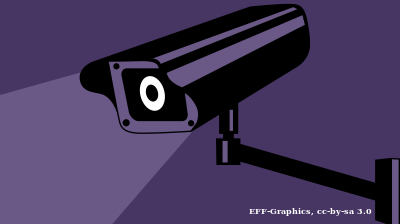An Iranian communications expert has warned that the country's internet filtering policies have inadvertently led millions of users to install VPN applications that may serve as espionage tools for foreign intelligence services.
Iranians need VPNs to connect with several major websites, including Facebook, WhatsApp, Telegram and several other websites, including foreign news sources like the BBC Persian service and other foreign-based websites. During the 12-day war between Iran and Israel, Iranian internet service providers were forced to entirely disconnect the country's internet connections for more than 48 hours.
Hamid Ziaei Parvar, a communications professor, said in a social media post that filtering policies in Iran have effectively facilitated the widespread installation of tens of millions of VPN applications developed by Israeli or foreign intelligence agencies, Citna reported on June 30.
"Defenders and implementers of filtering have, knowingly or unknowingly, played in Israel's field," Ziaei Parvar stated, arguing that the filtering approach has become a platform for installing espionage tools rather than protecting national security.
Over the past decade, Iran has extensively blocked social media and communication platforms including Instagram, Telegram, WhatsApp, Twitter and YouTube, forcing millions of users to rely on circumvention tools to maintain daily communications for work or education.
These tools, commonly known as VPNs or filter-breakers, are primarily offered by unknown sources or developers with unclear identities. Most are free and request complete access to device information, network communications, files, location data and even camera and microphone access.
Cybersecurity experts have warned that these applications may pose greater threats than the filtered content itself, potentially serving as tools for enemy infiltration. Users seeking solutions to bypass filtering restrictions may unknowingly expose themselves to direct information, cyber and even physical security threats.
The widespread use of unregulated VPN applications continues in the absence of a reliable alternative infrastructure, raising concerns about whether current filtering policies enhance security or facilitate foreign intelligence penetration.
The clampdown on internet users has not stopped since a ceasefire was enforced by US President Donald Trump on both countries last week, with heavy potential prison sentences for people who use purchased, smuggled Starlink systems.
Tech

Japan’s Nintendo predicts sales of 19mn Switch 2 units to March
The Switch 2 marks Nintendo’s most expensive hardware platform to date and represents the company’s principal long-term base for its extensive roster of first-party franchises.

Kyrgyzstan’s president addresses son’s involvement in creating digital bank with Binance founder ‘CZ’
Crypto kingpin Changpeng Zhao, two weeks ago pardoned by Donald Trump over money laundering, is adviser to country’s leader Japarov.

Russia blocking messaging apps again, sets up copycat Telegram app
Russia’s internet watchdog Roskomnadzor has been blamed for another round of internet outages in Russia, as the state sets up a Telegram messaging app clone as the Kremlin continues to take increasing control of RuNet.

Albania’s AI minister ‘pregnant’ with 83 children, PM says
AI “minister” Diella will give birth to dozens of digital parliamentary assistants for ruling party MPs.




